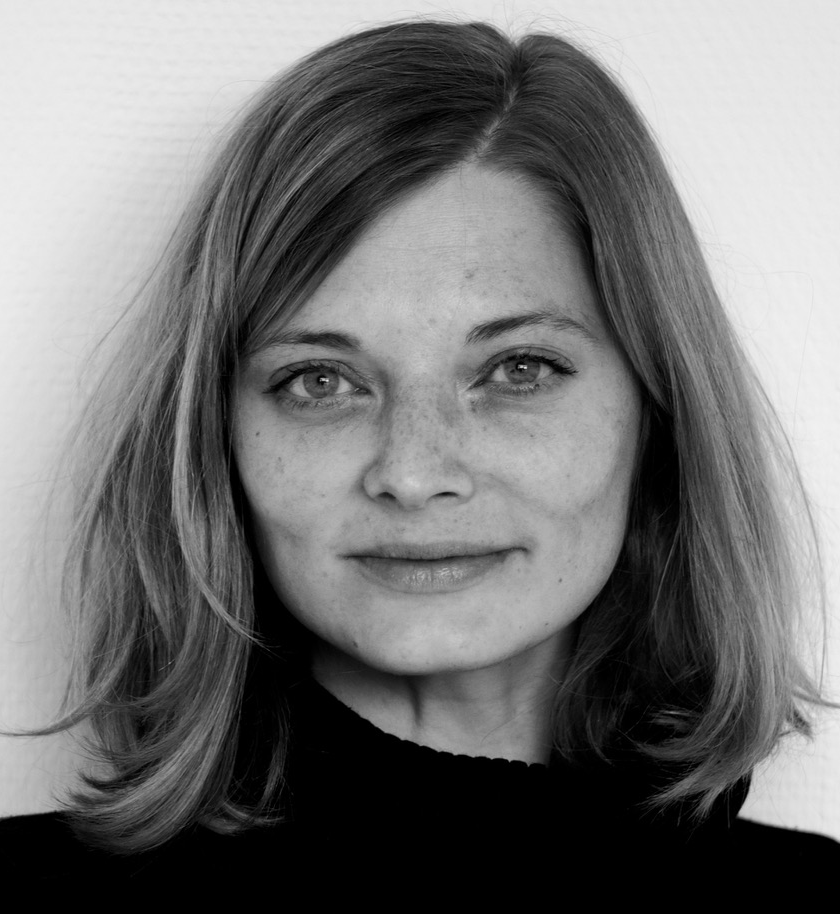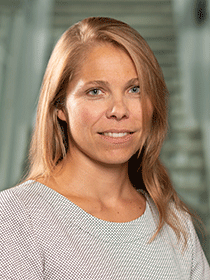University for Continuing Education Krems (Danube University Krems)
on Zoom
Interdisciplinary migration research seminar series
Beyond the usual suspects:
Overlooked (f)actors in migration governance
October 2022 - June 2023
Convener: Dr Lea Müller-Funk & Dr Federica Zardo, Department for Migration and Globalisation
The interdisciplinary seminar series on migration research at the Department for Migration and Globalisation at the University of Continuing Education Krems focuses on the work of scholars who deal with migration in some capacity. Between October 2022 and June 2023, this year's series will focus on often overlooked actors and factors in migration governance through nine talks covering three more specific foci – migration governance beyond state actors; migration governance beyond migration policy; and colonial heritage, history and memory in migration (governance). The seminar takes place once a month.
Registration for the next talk below:
By registering for the event you acknowledge https://zoom.us/de-de/privacy.html and https://www.mural.co/terms/privacy-policy? as well as https://www.donau-uni.ac.at/en/university/privacy-policy#event.
Thursday, 15 June 2023, 10:30-11:30 am
Dr Félix Krawatzek (Centre for East European and International Studies):
From the centre of the world to one of its peripheries? New Russians in the South Caucasus (online)
Abstract
With the escalation of war in Ukraine, scholars are required to look at the post-Soviet space from the angle of migration studies and think about the pertinence of decolonial perspectives. In this talk, Félix Krawatzek will try to do this by drawing on two large-scale survey conducted in late 2022 among Russian migrants in Georgia and Armenia. The data help to situate the potential clash between centre and periphery in a situation of geopolitical turmoil and how Russians abroad deal with their relationship to their place of origin. Indeed, a number of Russians unprecedented since the 1917 Revolutions have left their country in the aftermath of the full-scale invasion of Ukraine in February 2022. Many are among the most educated Russians who have held key economic or social positions in St. Petersburg and Moscow. The talk is part of an ERC-funded research project “Moving Russia(ns): Intergenerational Transmission of Memories Abroad and at Home (MoveMeRU)”.
past events
Thursday, 20 October 2022, 2-3pm
Professor Jana Lipman (Tulane University)
"Protest Against Forced Repatriation":
Humanitarianism and Human Rights in Hong Kong, 1988-1997
Abstract
In 1988, Hong Kong dramatically changed the status of incoming Vietnamese from de facto “refugees” to individual asylum seekers, needing to prove their claims. Despite initial reservations, the UNHCR ultimately endorsed this new policy for the whole region. In response, Vietnamese in the camps organized dramatic demonstrations against Hong Kong and the UNHCR, filed scores of lawsuits, and protested repatriation flights. This historic encounter raises questions about the conflict between human rights and humanitarianism, the politics of prima facie refugee status vs. individual asylum determination, and the role of refugee activists and host governments, all which remain relevant today.
Thursday, 24 November 2022, 10:30-11:30am
Professor Anja K. Franck (University of Gothenburg)
"Laughable borders":
Making the case for the humorous in migration studies
Abstract
Humor is widely recognized as a fundamental aspect of the human experience, that also plays a vital role in the way marginalized groups comment on and mock power. Yet, in migration research the methodological and analytical value of the humorous has been almost entirely overlooked. Rather, migration studies has commonly centered its analysis around suffering and tragedy and, in the process, migrant trajectories have become depicted as endeavors largely devoid of laughter, humor, irony and play. In my article “Laughable borders” I suggests that this humorless representation of the migration process– and indeed of the migrant subject itself– has implications for the types of knowledge that we (re)produce around migrants’ experiences, subjectivities and struggles. In fact, I argue that our failure to recognize migrants as humorous individuals risks feeding into processes of exceptionalization and de-humanization through setting “the migrant” up as an obscure figure that lacks “essentially human” qualities.
Thursday, 26 January 2023, 10:30-11:30am
Assoz. Professor Elisabeth Scheibelhofer (University of Vienna)
Delivering and (re-)producing social inequalities in a diverse society: Insights from welfare state institutions and street-level bureaucrats’ practices (in presence)
Abstract
Today, we are experiencing social life in a super-diverse society (Vertovec 2007) and the question arises as to how welfare state institutions deal with this fact. In our various research projects about inequalities in transnational migration societies, my research team and me are focusing on the perspective of the involved actors themselves, who are both at the core of our interpretative constructivist research (Charmaz 2008): migrants and street-level workers of diverse welfare state institutions. We perceive these actors as embedded into broader societal systems: In the case of street-level bureaucrats, these are the welfare state institutions they work for; for migrants, these are their manifold social networks including their workplaces etc., but also broader society that confronts them with everyday discrimination and racism. I will conclude the talk by addressing difficulties we are dealing with in our research, such as the consequences of positionalities of the actors involved and us, the researchers.
See more about our work at: https://inmi.univie.ac.at/
Thursday, 23 February 2023, 10:30-11:30am
Professor Peter Scholten (University of Rotterdam)
Rethinking the governance of migration and migration-related diversities: the prospects of a complexity governance approach
Abstract
Why are migration and diversity policies so often perceived to have failed? What goes wrong in how we approach the governance of these issues? In this presentation I will elaborate a very basic assumption; that complex problems require a complexity approach. I wil show (1) that a complexification has and is taking place in migration and diversity, (2) that this conflicts with approaches of rational societal engineering and interventionism that prevail in many migration and ‘integration’ policies, (3) that this leads to alienation in terms of consequences of policies as well as effects it has on frontline officers implementing policies, and (4) that a complexity approach requires a more fundamental rethinking in how policies are designed but (5) that this can lead to succesful mainstreaming of policies and preventing alienation.
Thursday, 23 March 2023, 10:30-11:30 am
Dr Sarah Nash (University for Continuing Education Krems)
Issue parking in policy silos: an interpretive comparative analysis of policy discourses on climate change and migration in Austria, Germany, Denmark, and Sweden.
Abstract
In the burgeoning literature on climate change and migration policy, the focus is overwhelmingly on the international arena or a handful of affected states. In contrast little is known about national policy discourses in the Global North. As influential contributors to global conversations this is a glaring omission. This paper therefore explores policy discourses on climate change and migration in four European nation states and poses the question: how do national policy discourses on climate change and migration influence policy objectives? In answering this question, the analysis focuses on the interaction of, and parking of the issue in, particular policy silos be it climate, migration, security, or development policy. The discourse analysis presented in the paper draws on document analysis and 34 semi-structured interviews conducted with stakeholders across the 4 case studies between September 2020 and April 2022. The relevance of this paper goes beyond the field of climate change and migration. As the cross-cutting nature of climate change across all policy silos becomes more recognised and holistic and system-based approaches more mainstream, analyses that join up climate policy with discussions in other policy silos will become increasingly important.
Thursday, 27 April 2023, 10:30-11:30 am
Dr Lucy Mayblin (University of Sheffield):
On Ruins and Legacies: Excavating methods for historically informed research in migration studies (online)
Abstract
Understanding the implications, legacies, traces, or continuities of European colonialism for contemporary social life has become a growing area of interest in recent years, particularly for those working on race and racism, ethnicity, and migration. Much of the methodological discussion that this ‘postcolonial turn’ has precipitated in migration studies has been focussed on the ethics of contemporary migration research methods, and on North-South power relations in the research process. While such discussions are deeply important, very little has been said about other methodological questions. This talk focuses specifically on the question of doing historically informed research. How do we methodologically deal with vast temporal and spatial phenomena? How do we trace ideas over time? How do we map continuity and change? What is a legacy? The field known as Historical Sociology should have some of the answers to these questions, but this field itself has been subject to damning postcolonial critique in recent years. This talk argues that growing interest in postcolonial migration research necessitates the development and uncovering of concepts and methodological tools for undertaking what might be termed postcolonial historical sociology. Without fully elaborating a single approach, I propose some principles and methodological approaches in order to spark a wider discussion about methods for historically informed research in migration studies, after the postcolonial turn.
Thursday, 11 May 2023, 10:30-11:30 am
Prof. Fiona B. Adamson (School of Oriental and African Studies):
From Colonial to Post-Colonial Entanglements: Migration, Mobility and State-Building in France and Algeria (online)
Abstract
This presentation will develop the concept of “entangled migration states” as a means of highlighting the centrality of migration governance to state-building processes, the constitution of state sovereignty, and interstate relations. Drawing on the example of France and Algeria, it will outline the key role that migration played in three phases of state building: the colonial period of Algérie Française; the Algerian nationalist independence movement; and post-colonial state and nation-building. In the case of France and Algeria, at least three actors constructed and instrumentalized migration and mobility regimes as sources of power and control — the French imperial state; the non-state Algerian independence movement; and the newly sovereign Algerian state. A focus on the entangled nature of migration management allows for a deeper historicization of contemporary migration regimes, and draws attention to the central role played by migration diplomacy and transnational governmentality, thus calling into question some of the spatial assumptions undergirding conventional studies of migration policy formulation.
videos of past events
contact

Tags
